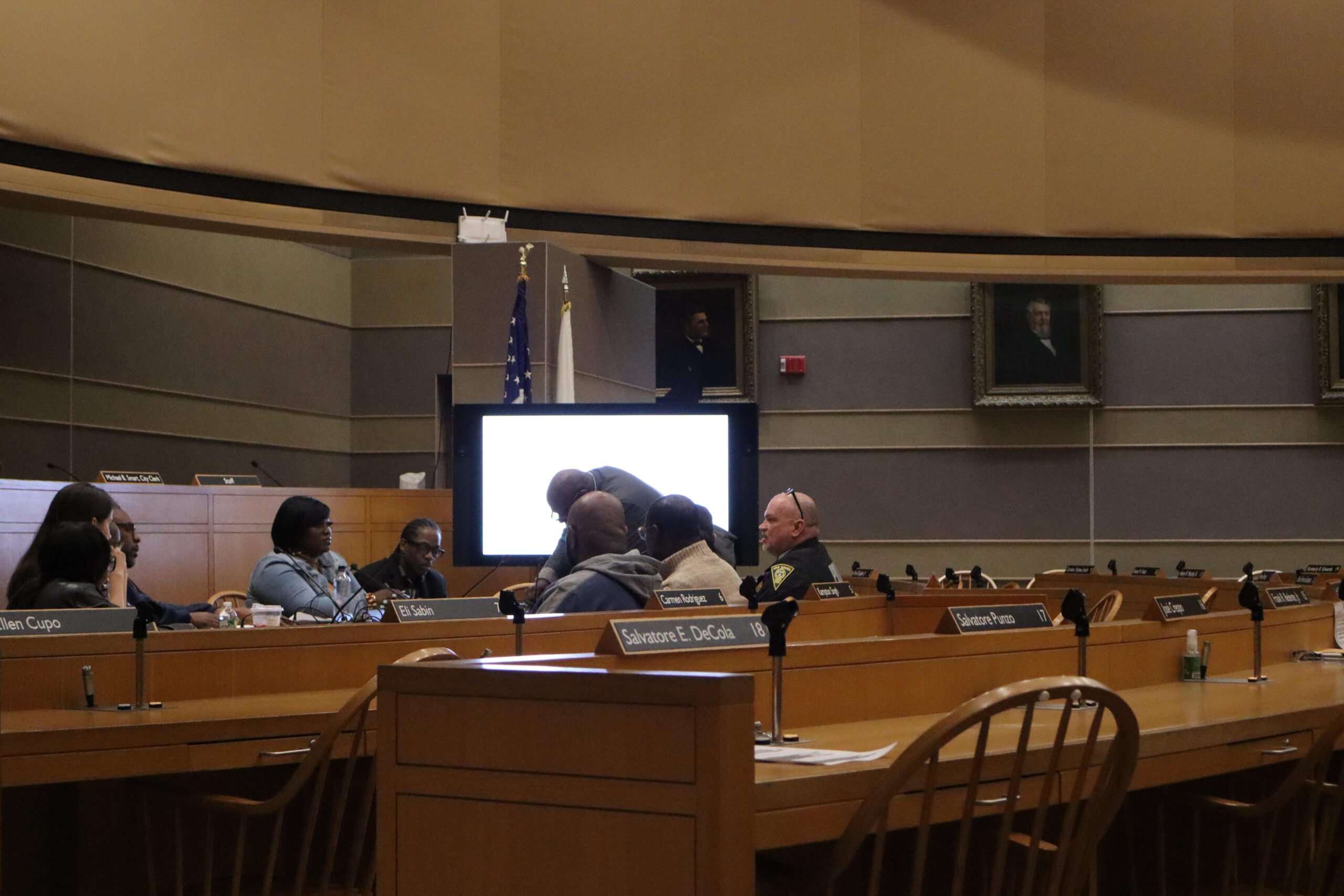Car repair for Kia Boyz: Project Longevity, police department focus on curbing youth violence
The New Haven office of the state-wide gun violence prevention program has expanded its holistic intervention approach to families and youth.

Ariela Lopez, Contributing Photographer
As New Haven confronts trending auto thefts and street takeovers, a recently expanded violence intervention program has stepped up to aid the police department’s efforts to curb crime through a holistic approach.
Project Longevity was launched in 2012 in New Haven, Hartford and Bridgeport as a gun violence reduction initiative. In late 2021, the state-funded Justice Education Center became the statewide administrative and coordinating arm for the program, allowing Project Longevity to enhance its operations, Kate Gunning, the program’s state coordinator, explained to the Board of Alders’ public safety committee on Monday.
That enhancement included new energy directed toward helping families and juveniles through youth services and even helping families move out of New Haven when they are repeatedly threatened by community violence. The program has continued its efforts to provide services to formerly incarcerated individuals through a partnership with the New Haven Police Department.
“Project Longevity, up until 2022, didn’t touch juveniles,” New Haven Police Chief Karl Jacobson told the public safety committee. “It was 18 and over, group or gang violence. They really didn’t look at anybody outside of that group. But we went to them and said, ‘We need more.’”
Designed as a “group violence intervention” approach, Project Longevity partners with local law enforcement to offer career, housing, food, health and other services to individuals who are under probation or parole.
If the formerly incarcerated individual continues to be associated with crime or gang activity, Project Longevity tries a more direct in-person intervention to notify the individuals of the consequences of criminal activity. If the criminal behavior continues, the individual is rearrested. The initiative was controversial among some criminal justice advocates in New Haven for its partnership with law enforcement.
At Monday’s public safety hearing, the Project Longevity delegation highlighted a “new approach” to the program, featuring expanded housing assistance and drivers’ education programs, as well as more outreach and larger roles for case management and care coordination agencies.
Jacobson described how he has partnered with Project Longevity to brainstorm potential solutions to the city’s juvenile theft epidemic by engaging the adolescents involved.
“We were talking about getting on board someone that does car repair, and teaching some of the Kia Boyz to repair cars,” Jacobson said. “We’re trying to think outside the box.”
Alder Honda Smith, who represents Ward 30 in West Hills, concurred with the proposal to teach car repair to “Kia Boyz” — adolescents who have gone viral online for stealing vehicles. Although auto theft rates have declined in New Haven in the past year, the Kia Boyz phenomenon has remained a priority for the city’s police department.
Smith explained that she has worked with self-identified Kia Boyz through the Shack, a community center in her district that she helped revive. Since its 2022 opening, the Shack has offered educational programming, food assistance and community gatherings to West Hills.
“I talk to Kia Boyz every day,” Smith told the News, explaining that the adolescents sometimes come to the Shack for meals. “I go and find them in the street.”
Through her work, which she said complements Project Longevity’s holistic approach, Smith has helped to pair young community members with educational opportunities and — for those old enough — employment. She believes that some of the adolescents she works with have “turned their lives around.”
Project Longevity has also partnered with the police department on youth-focused activities like “midnight basketball” at Hillhouse High School to keep young individuals off the streets, which Jacobson said was only financially possible with Project Longevity’s help.
Gunning told the News that Project Longevity has supported “a lot more families” in New Haven due to recent youth-involved shootings.
Gunning and Jacobson highlighted the partnership’s recently adopted strategy of assisting a New Haven family threatened by ongoing violence to relocate elsewhere in the state or the country. Jacobson told the News in January that the department has opted for this approach in cases of youth violence that threatens to continue.
Amid the Trump administration’s large-scale federal funding cuts, Project Longevity may soon lose “over $290,000,” according to Tirzah Kemp, the city’s community resilience chief.
Kemp explained that the office is proactively working on a contingency plan to offset a potential loss of federal funding. She noted that the office has made contact with several philanthropic organizations and is working to minimize costs.
Alder Brian Wingate, who chairs the public safety committee, told the News he was worried about the potential impact of funding cuts on the city’s violence prevention structures. However, he emphasized the “passion” of the Project Longevity and Office of Violence Prevention representatives who spoke at the committee hearing, describing his efforts to highlight their work as “proactive.”
“We want to put a bigger light on Project Longevity going forward,” Wingate said. “We all want New Haven to be a safe haven.”
Project Longevity now operates in New Haven, Hartford, Bridgeport, Waterbury, Norwich and New London.
Interested in getting more news about New Haven? Join our newsletter!







